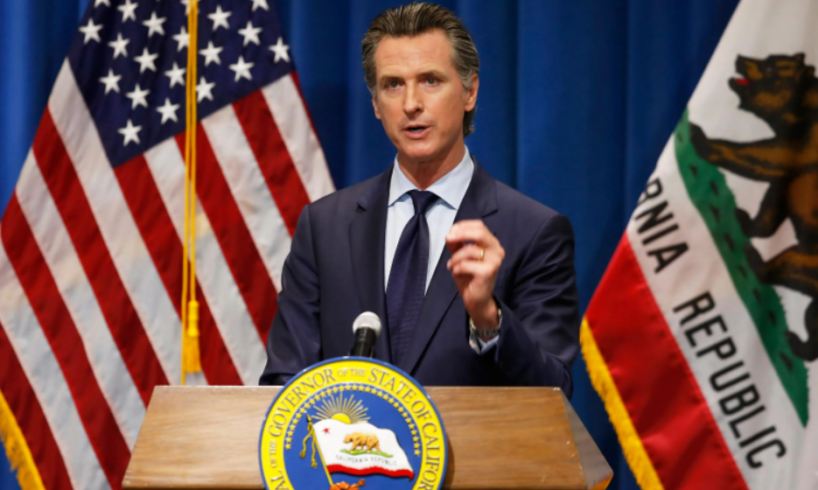
Gov. Gavin Newsom unveiled a $18.1 billion dollar relief package on Thursday to address rising inflationary costs by leveraging the state’s budget surplus.
The package, introduced a day before Newsom is set to reveal the revised state budget, comes as Californians are still paying the highest prices in the nation for gas and facing rising prices at the grocery store due to inflation and supply chain issues.
A large portion of the relief package – $11.5 billion – is dedicated to tax refunds for Californians and includes the governor’s rebate proposal announced in March to send $400 checks to every registered vehicle owner, with a cap of two checks per individual. Newsom’s gas relief proposal also included three months of free public transportation, and his relief package includes $750 million to fund it.
“This inflation relief package will help offset the higher costs that Californians are facing right now and provide support to those still recovering from the pandemic,” Newsom said in a statement.
The funding package utilizes the state’s budget surplus to “get money back into the pockets of Californians,” Newsom said. Last week, Senate Democrats indicated that the surplus has stretched up to $68 billion, far higher than the $29 billion estimated in January.
Under Newsom’s proposed relief package, hospital workers and skilled nursing facility workers who have delivered care “to the most acute patients” during the pandemic would be eligible for $1,500 as part of $933 million earmarked for hospital and nursing home staff.
The relief package also includes:
- $2.7 billion to provide emergency rental assistance to low-income tenants who applied for assistance before March 31
- $1.4 billion to help residents pay back past-due utility bills, including $1.2 billion for electricity and $200 million for water bills
- $304 million to expand “health insurance premium assistance under Covered California for families of four earning up to $166,500 annually”
- $439 million to pause the diesel sales tax for 12 months
- $157 million to “waive child care fees for low-income families”
“These investments will make a meaningful impact on the lives of Californians by making health care and child care more affordable while also providing relief for the many who struggled to afford the cost of energy during the pandemic,” Health & Human Services Agency Secretary Dr. Mark Ghaly said in a statement.
The state will also see its minimum wage increase to $15.50 an hour for workers starting January 1, 2023, Newsom’s office announced Thursday. The “accelerated increase” comes as a result of inflation exceeding 7%, according to the governor’s office.
“The wage increase will benefit millions of California households that are struggling to keep pace with the highest rate of inflation in decades,” Newsom’s office said in a news release.
This article was originally posted on Newsom unveils $18.1 billion relief package to address inflation